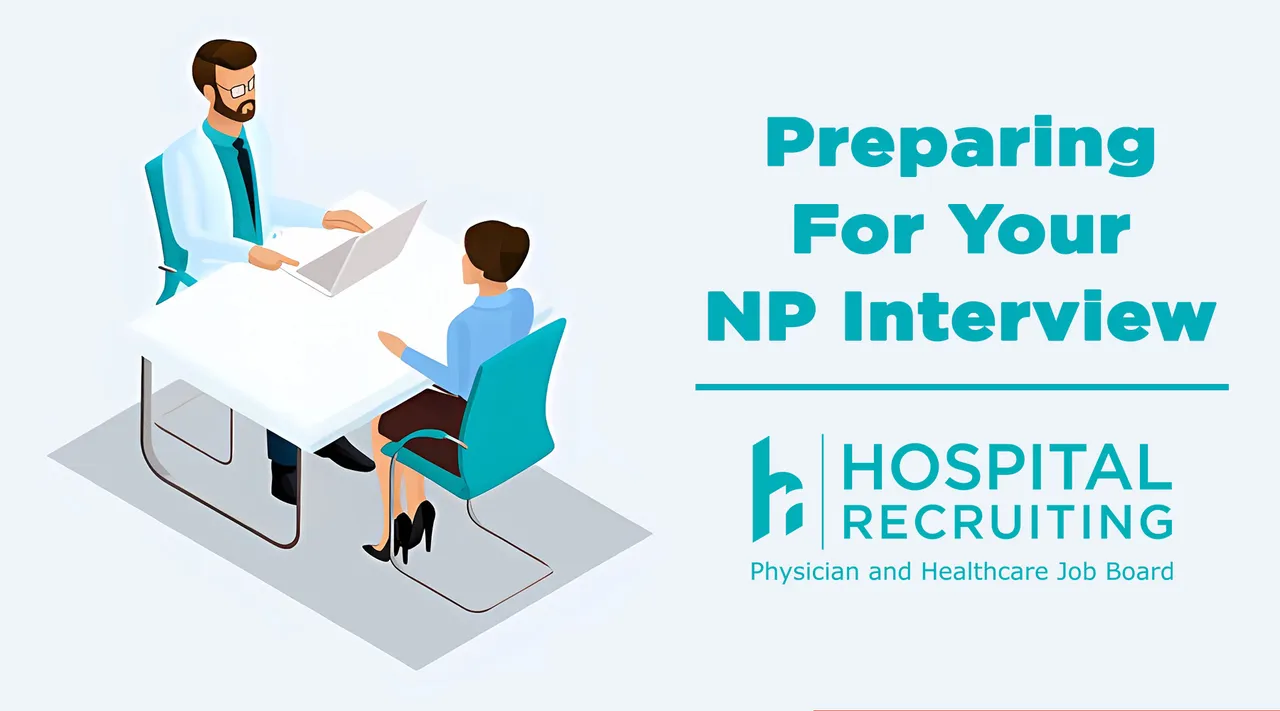Preparing for Your NP Interview: Response Strategies to Common Questions

As a nurse practitioner (NP), interviews are an opportunity to showcase your expertise, clinical judgment, and your dedication to patient care. Let’s dive into common NP interview questions—covering both general nursing and NP-specific inquiries, along with behavioral questions that I’ve encountered personally and also from quizzing colleagues. Understanding how to respond confidently as well as what the interviewer is evaluating will significantly improve your chances of standing out in the selection process.
Common Nursing Interview Questions
In any NP interview, expect foundational questions that assess your nursing background. These questions help employers gauge your general experience, critical thinking, and problem-solving abilities.
Q: Can you describe a time when you had to prioritize multiple patients with different needs?
Suggested Answer: " In my role as an NP in a busy emergency department, I frequently encountered situations where I had to prioritize care for multiple patients. For example, one day I had a patient presenting with chest pain, while another required immediate wound care for a deep laceration. I used the ABCDE framework (Airway, Breathing, Circulation, Disability, Exposure) to assess which patient had the most critical needs. I immediately stabilized the patient with chest pain, while delegating wound care to the nursing team. This approach ensured both patients received appropriate care without unnecessary delays."
Evaluation: Prioritization, time management
Q: How do you handle a situation where a patient’s family disagrees with the proposed care plan?
Suggested Answer: "I approach disagreements with empathy and clear communication. In one instance, a patient's family was hesitant to approve a necessary surgical procedure. I made sure to sit with them and explain the medical rationale behind the surgery, using simple terms and providing research-based information to alleviate their concerns. I also involved the healthcare team in the discussion to offer additional perspectives. By engaging them in a compassionate and informed dialogue, we were able to reach a consensus that prioritized the patient’s health while considering the family's concerns."
Evaluation: Communication, conflict resolution
Q: Tell me about a time you encountered an ethical dilemma in patient care.
Suggested Answer: "I once had a situation where a terminally ill patient expressed a desire to discontinue aggressive treatment, but their family wanted to continue. I adhered to the ethical principle of patient autonomy, ensuring the patient’s wishes were respected, while providing the family with supportive education on the decision. By involving the hospital ethics committee and offering emotional support, I was able to navigate the delicate balance between respecting the patient's rights and addressing the family’s concerns compassionately."
Evaluation: Ethics, patient advocacy
Q: Describe how you manage high-pressure situations, such as a sudden influx of critical patients.
Suggested Answer: "I engage patients in open conversations to understand the reasons behind their refusal. In one instance, a patient refused to take a prescribed blood pressure medication. I took time to listen to their concerns, explained the potential consequences of untreated hypertension, and offered alternative options. If the patient continued to refuse, I documented their decision, provided them with educational materials, and ensured they understood the risks while maintaining their autonomy."
Evaluation: Stress management, leadership

Nursing-Specific Interview Questions
Generally, interviewers will dive deeper into your clinical experience to understand your proficiency and ability to navigate patient care effectively.
Q: Describe your experience with electronic medical records (EMRs) and how you use them to inform patient care.
Suggested Answer: "I have extensive experience working with several EMR systems, including Epic and Cerner. I use EMRs to document patient care accurately, track progress, and ensure continuity of care through seamless communication with other healthcare providers. For example, when managing a patient with multiple chronic conditions, I rely on EMRs to review past records, medication histories, and test results, which helps me make informed decisions about their ongoing treatment plan."
Evaluation: Technical skills, EMR proficiency
Q: How do you ensure medication safety when managing complex patient cases?
Suggested Answer: "I follow evidence-based guidelines and double-check medication orders to prevent errors. For patients with complex conditions and polypharmacy, I verify all allergies and cross-check medications for potential interactions using clinical decision support tools. I also work closely with pharmacists to ensure the correct dosages and protocols are followed, particularly when administering high-risk medications like anticoagulants."
Evaluation: Medication management, attention to detail
Q: Can you describe a clinical scenario where you identified a gap in patient care and took action?
Suggested Answer: "During my time in a primary care clinic, I noticed that heart failure patients were being discharged without consistent education on post-discharge management. I took the initiative to develop a standardized discharge checklist that included medication instructions, diet recommendations, and follow-up appointment reminders. I collaborated with the nursing staff to implement this checklist, resulting in improved patient outcomes and a reduction in readmission rates."
Evaluation: Problem-solving, initiative
Q: How do you handle a situation where a patient refuses treatment?
Suggested Answer: "I engage patients in open conversations to understand the reasons behind their refusal. In one instance, a patient refused to take a prescribed blood pressure medication. I took time to listen to their concerns, explained the potential consequences of untreated hypertension, and offered alternative options. If the patient continued to refuse, I documented their decision, provided them with educational materials, and ensured they understood the risks while maintaining their autonomy."
Evaluation: Patient communication, conflict resolution

Behavioral Interview Questions
Behavioral questions help interviewers understand how you've handled specific situations in the past, giving insight into your decision-making process and adaptability.
Q: Tell me about a time when you had to adapt to a new workflow or process in your unit.
Suggested Answer: "When our unit transitioned to a new EMR system, I took the initiative to attend multiple training sessions and became an informal resource for my colleagues. By staying up to date on the system’s features and offering one-on-one support to staff members, I helped ensure a smooth transition. My proactive approach reduced frustration among the team and minimized disruptions to patient care."
Evaluation: Flexibility, adaptability
Q: Describe a time when you handled a conflict with a colleague.
Suggested Answer: "I once had a disagreement with a colleague over a patient’s discharge plan. Instead of letting it escalate, I initiated a private conversation to understand their perspective and shared my own clinical reasoning. We worked together to find a solution that balanced both our viewpoints, ultimately benefiting the patient. By approaching the conflict professionally and collaboratively, we improved communication and patient care."
Evaluation: Communication, teamwork
Q: Can you give an example of how you managed a patient’s care when faced with limited resources?
Suggested Answer: "During a supply shortage at my previous hospital, I had a patient requiring specific wound dressings that were unavailable. I collaborated with the care team to find alternative supplies that met the patient’s needs, while ensuring that the patient’s care was not compromised. By thinking creatively and coordinating with other departments, we were able to manage the situation effectively."
Evaluation: Resourcefulness, problem-solving
Q: Tell me about a time when you went above and beyond for a patient or their family.
Suggested Answer: "I had a patient who was newly diagnosed with diabetes and struggled to manage their condition. They were feeling overwhelmed by the amount of lifestyle changes needed. I not only provided extensive education on blood sugar monitoring and diet but also coordinated a meeting with a dietitian and arranged for them to attend a local diabetes support group. Additionally, I followed up with the patient after discharge to see how they were managing and provided extra resources to help them feel confident in their self-care."
Evaluation: Compassion, patient-centered care

Specialized NP Interview Questions
Your specialty may require you to answer more specific clinical questions that relate directly to your area of expertise, such as pediatrics or family practice.
Pediatric NP:
Q: How do you approach developmental assessments in children?
Suggested Answer: "I use standardized tools like the Denver II and Ages & Stages Questionnaire (ASQ) to track developmental milestones. I also collaborate with parents and caregivers to understand the child’s behavior in different environments, ensuring a holistic approach to identifying any potential delays early on. If needed, I refer the child to specialists for further evaluation and support."
Evaluation: Developmental knowledge, assessment skills
Q: How do you involve parents in creating care plans for their children?
Suggested Answer: "I ensure open communication with parents, providing them with educational resources and involving them in decision-making to build trust."
Evaluation: Family-centered care, communication
Q: Describe a time when you had to manage a critically ill child.
Suggested Answer: "I worked closely with a multidisciplinary team, using pediatric-specific protocols to stabilize the child while keeping the family informed and supported."
Evaluation: Clinical skills, communication
Family NP:
Q: How do you manage patients with multiple chronic conditions?
Suggested Answer: "I coordinate care across specialties, adjust treatment plans based on patient feedback, and provide education on lifestyle management."
Evaluation: Chronic disease management, coordination of care
Q: Describe your approach to preventive care in family practice.
Suggested Answer: "I emphasize patient education on lifestyle changes, provide regular screenings, and collaborate with the care team to implement preventive measures."
Evaluation: Preventive care, patient education
Q: Can you give an example of how you’ve addressed a patient’s mental health concerns during a primary care visit?
Suggested Answer: "I incorporate mental health screening into all primary care visits, providing referrals to behavioral health specialists when necessary and ensuring follow-up care."
Evaluation: Holistic care, mental health management
Conclusion
Preparing for an NP interview is about showcasing not only your clinical expertise but also your communication skills, adaptability, and commitment to patient care. While the questions and answers are not set in stone, they do generally represent typical interview questions in the profession. By practicing responses to these questions, you can enter the interview feeling confident and ready to demonstrate your value. Remember to highlight your unique strengths and tailor your answers to reflect the specific needs of the role you’re applying for. Good luck!
Related Posts
